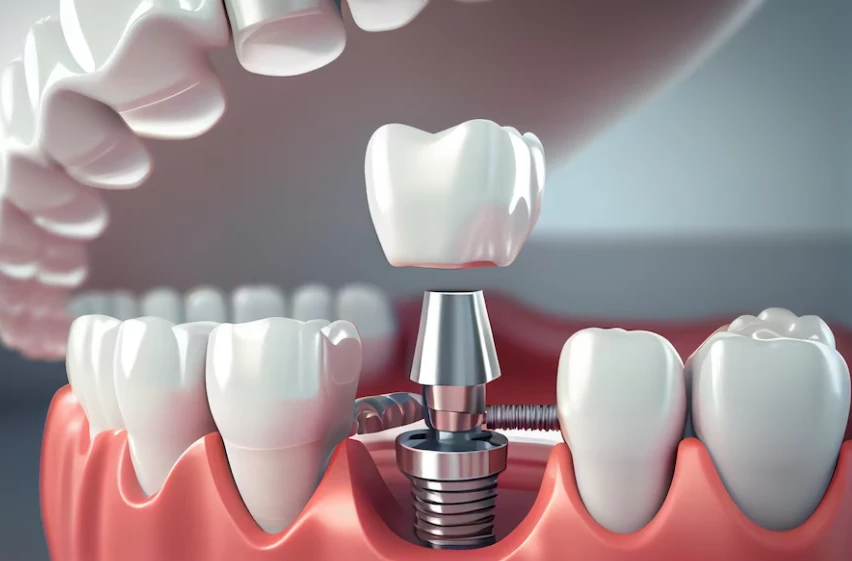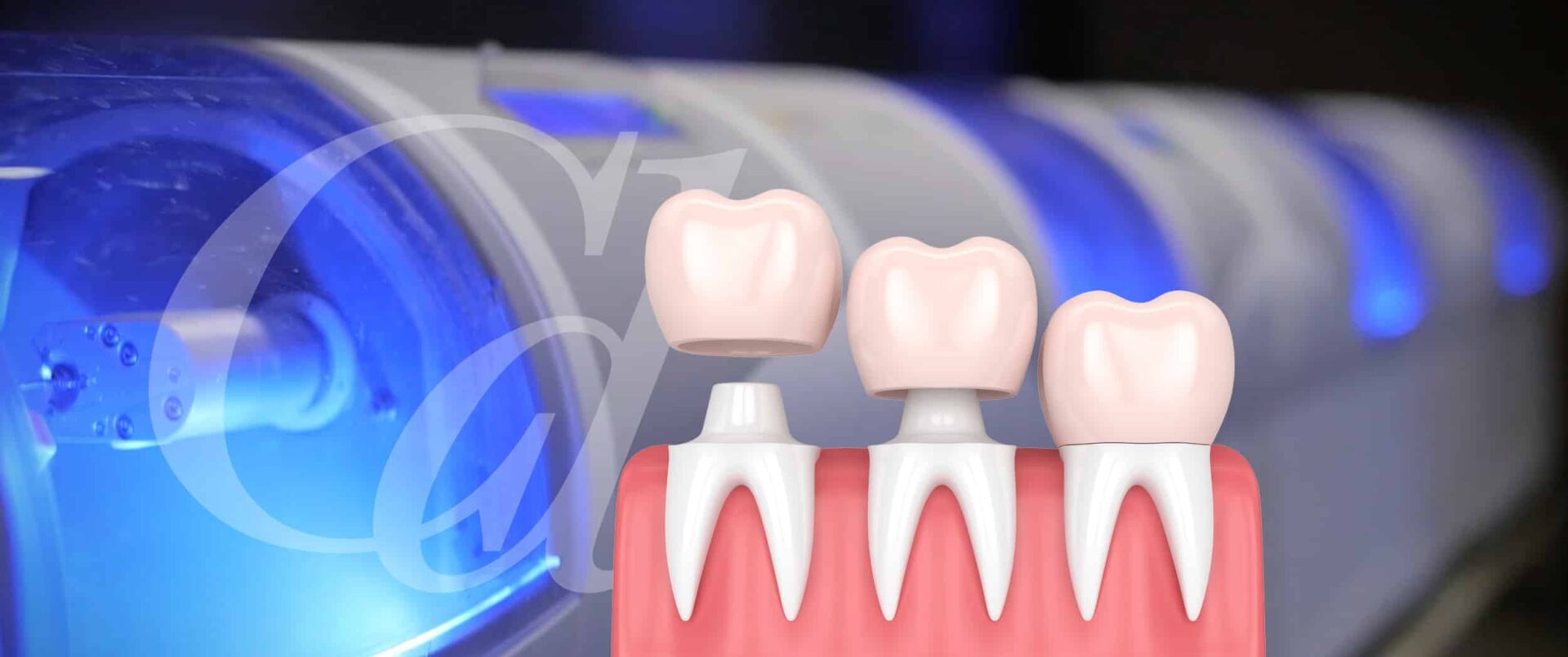A quiet revolution is transforming smiles and restoring confidence among older adults: dental implants. As we age, maintaining oral health becomes more challenging, but that doesn’t mean it’s time to settle for dentures or avoid favorite foods. Dental implants are stepping up as a game-changer, offering a natural, durable, and hassle-free solution for missing teeth. They don’t just replace teeth—they rebuild comfort, function, and self-assurance.
With advancements in dental technology, implants have become safer and more accessible, helping countless seniors rediscover the joy of eating, speaking, and smiling without worry. If you’re curious about how this remarkable solution is reshaping oral care for the aging population, you’re in for an exciting deep dive into a topic that’s truly worth smiling about.
How Do Dental Implants Benefit the Aging Population in Maintaining Oral Health?
For many seniors, the loss of teeth can be a challenging experience. It not only affects appearance but also has functional implications—difficulty chewing, speaking, and maintaining proper nutrition. Dental implants address these issues in a way that traditional dentures or bridges simply cannot. Here’s how they benefit the aging population:
- Improved Functionality: Dental implants restore the ability to chew food properly, which is vital for maintaining a balanced diet. Without functional teeth, older adults may struggle to eat nutritious foods such as vegetables, fruits, and proteins. Implants replicate the natural function of teeth, helping seniors enjoy a wider variety of foods without discomfort or restrictions.
- Enhanced Comfort and Fit: Unlike dentures, which may slip or cause irritation, dental implants are securely anchored in the jawbone, offering a stable and comfortable fit. This provides seniors with the confidence to go about their daily activities without worrying about their teeth shifting or falling out.
- Prevention of Bone Loss: One of the most significant benefits of dental implants for the aging population is their ability to prevent bone loss in the jaw. When a tooth is lost, the bone that once supported the tooth begins to deteriorate over time. Dental implants are embedded into the jawbone, mimicking the natural tooth root, which stimulates the bone and prevents further degeneration. This is particularly important for older adults, as bone density naturally decreases with age.
- Better Oral Hygiene: Dental implants are easier to maintain than dentures, as they don’t require special cleaning solutions or removal. Seniors can brush and floss their implants just like natural teeth, which helps maintain better oral hygiene and reduces the risk of gum disease and further tooth loss.
- Improved Self-esteem: Losing teeth can affect self-esteem and social confidence. Many seniors feel self-conscious about their appearance and may avoid social interactions. Dental implants restore a natural-looking smile, helping seniors feel more confident in their appearance and more willing to engage in social activities.
Are Dental Implants Suitable For Older Adults With Existing Health Conditions?
As people age, they often face health challenges such as diabetes, heart disease, and osteoporosis, all of which can affect the success of dental treatments. Dental implants, however, are not a one-size-fits-all solution. It’s important to understand how existing health conditions can influence whether dental implants are a viable option for older adults.
- Diabetes: Diabetes can impact the healing process following dental implant surgery, as it can affect the body’s ability to heal wounds. However, with proper management of blood sugar levels, many individuals with diabetes can still be candidates for dental implants. Dentists may recommend a thorough evaluation of the patient’s overall health before proceeding with treatment.
- Osteoporosis: Osteoporosis leads to a reduction in bone density, which could pose challenges for placing dental implants, as a sufficient amount of healthy bone is needed for anchoring the implant. However, newer techniques in implantology, such as mini implants or bone grafting, have made dental implants more accessible to those with reduced bone mass. A dentist may suggest bone augmentation procedures to enhance bone quality in preparation for implant placement.
- Heart Disease and Blood Pressure Issues: Patients with heart disease or high blood pressure may need special considerations before undergoing dental implant surgery. A dentist may consult with the patient’s cardiologist to ensure that it is safe to proceed with the procedure. Moreover, the use of sedation and local anesthesia may be carefully monitored to avoid complications.
- Oral Health Conditions: Older adults may also experience gum disease, which can complicate the placement of dental implants. If the gums are not healthy, they may not be able to properly support an implant. In these cases, a dentist may recommend treating the gum disease first before proceeding with implants. This highlights the importance of a comprehensive dental evaluation before starting any implant procedure.
In general, dental implants can still be a viable option for older adults, even those with existing health conditions, as long as the conditions are well-managed and the patient’s overall health is carefully considered.
What Makes Dental Implants a Revolutionary Solution For Age-Related Tooth Loss?
Tooth loss due to aging is a common issue, and many seniors face the challenge of finding a reliable and long-lasting solution. For years, dentures and bridges were the go-to options for tooth replacement. However, dental implants offer a revolutionary solution that addresses the limitations of these traditional methods. Here’s why dental implants are considered a breakthrough in oral care for seniors:
- Permanent Solution: Unlike dentures, which need to be replaced every few years, dental implants are designed to last a lifetime. When properly cared for, implants can offer a permanent solution to tooth loss, providing long-term benefits that dentures cannot match. This is especially significant for older adults who want a lasting solution without the hassle of frequent replacements.
- Mimicking Natural Teeth: Dental implants are designed to closely resemble natural teeth in both function and appearance. The titanium post serves as the tooth root, while the crown on top looks and feels like a real tooth. This makes dental implants not only a functional solution but also an aesthetic one, helping seniors restore their natural smile.
- Preventing Additional Health Complications: Tooth loss in older adults can contribute to a number of health issues, such as difficulty eating, nutritional deficiencies, and speech difficulties. By restoring lost teeth with implants, seniors can avoid these complications and maintain a better quality of life. Additionally, dental implants help protect surrounding teeth by distributing bite forces evenly, preventing wear and tear on other teeth.
- Improved Speech and Comfort: For seniors wearing dentures, speech can sometimes be affected as the dentures may slip or move while talking. Dental implants, on the other hand, offer a stable solution that allows for normal speech without the discomfort or embarrassment that comes with loose dentures.
- Prevention of Facial Sagging: Tooth loss can lead to a sunken or sagging appearance in the face, as the jawbone begins to deteriorate. Dental implants help prevent this by maintaining the bone structure and stimulating bone growth, thus preserving the shape and integrity of the face.
Why are Dental Implants Considered a Long-term Option For Seniors Seeking Tooth Replacement?
One of the primary reasons dental implants are considered the best long-term option for tooth replacement in seniors is their durability and reliability. When compared to other options like dentures or bridges, dental implants offer a superior level of long-term success and stability. Here’s why:
- Low Maintenance: Dental implants require very little maintenance once placed. As they are cared for like natural teeth, brushing and flossing regularly are usually sufficient to keep them in excellent condition. This simplicity in maintenance makes them ideal for seniors who may not want to deal with the hassle of removing and cleaning dentures every day.
- Durable and Long-lasting: With proper care, dental implants can last for decades or even a lifetime. This longevity is in stark contrast to dentures, which typically need to be replaced every 5 to 7 years. Implants provide a stable, permanent solution for seniors who want to avoid frequent replacements.
- Improved Quality of Life: The restoration of oral function with dental implants significantly improves the overall quality of life for seniors. The ability to eat, speak, and smile with confidence allows individuals to maintain their independence and continue to enjoy their social and family interactions without the limitations imposed by missing teeth.
- Preservation of Bone Health: As mentioned earlier, dental implants help preserve jawbone health by preventing bone loss. This is crucial for seniors, as bone density naturally decreases with age. By stimulating the bone, implants maintain the structure of the face and reduce the risk of further oral health issues down the road.
Dental implants have quietly become a cornerstone of oral care for the aging population, offering a solution that is not only functional but transformative. For seniors experiencing tooth loss, dental implants provide a permanent, comfortable, and aesthetically pleasing alternative to traditional dentures. They benefit oral health by improving chewing ability, preventing bone loss, and enhancing self-esteem. Even older adults with pre-existing health conditions can benefit from dental implants, provided their overall health is well-managed.
As the demand for long-term, reliable dental solutions increases, dental implants will continue to play a crucial role in improving the quality of life for aging adults, making them a revolutionary advancement in oral care.
Affordable, Quality Care for Your Dental Implant Needs: Explore Your Options Today
At Cascade Dental, we understand that the cost of dental implants can be a concern for many seniors looking to restore their smiles and oral health. That’s why we strive to provide transparent pricing and flexible payment options to make dental implants accessible for everyone. Our goal is to offer high-quality, long-lasting solutions at a price that fits your budget.
Our Dental Implant Services Include:
- Initial Consultation: A thorough examination to determine if dental implants are right for you, including X-rays and treatment planning. Cost: $99 (with insurance, or applied to treatment if you proceed).
- Implant Placement: The surgical placement of the titanium post into the jawbone. Cost: Starts at $1,500 per implant.
- Restoration and Crown: A custom-made crown placed on top of the implant to restore function and aesthetics. Cost: Starts at $1,200 per crown.
- Full Implant Packages: For multiple implants or full-mouth restoration, we offer comprehensive packages with significant savings.
We also offer financing options through trusted providers to ensure that you can get the care you need without the financial burden. Our team is committed to working with you to find a solution that aligns with your needs and budget.
Start Your Journey to a Healthier Smile Today
Don’t let missing teeth affect your confidence or quality of life any longer. Schedule your consultation at Cascade Dental and discover how dental implants can transform your oral health and smile for years to come. Contact us now to book your appointment or call our office for more information. We’re here to answer all your questions and guide you through the process every step of the way.
Call us today or visit our website to schedule your consultation!



